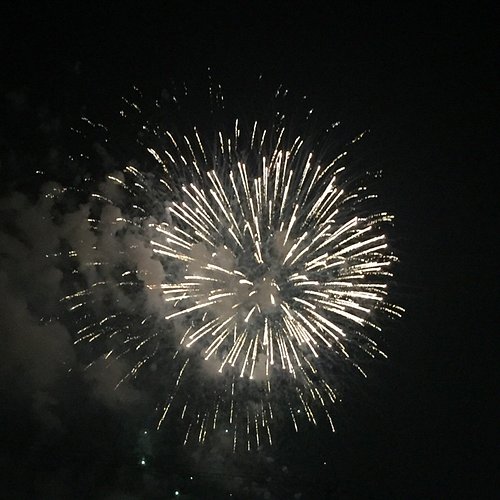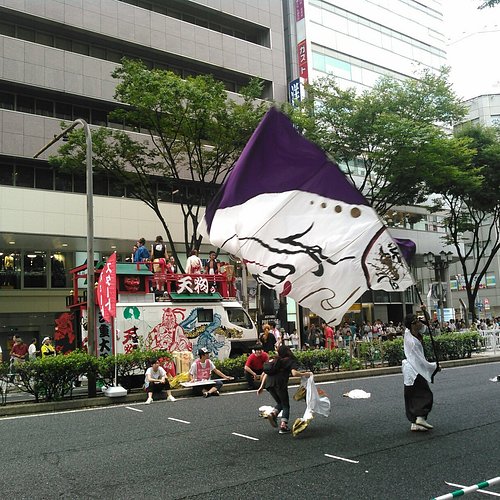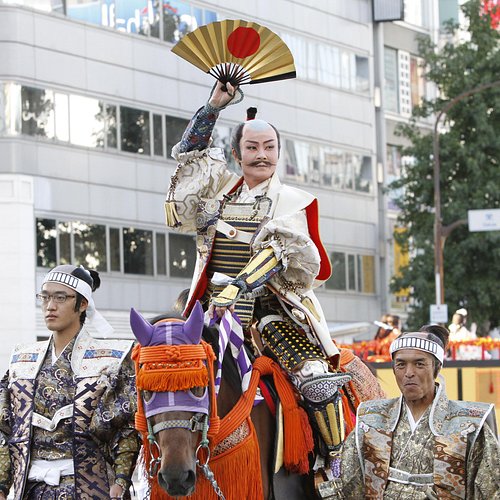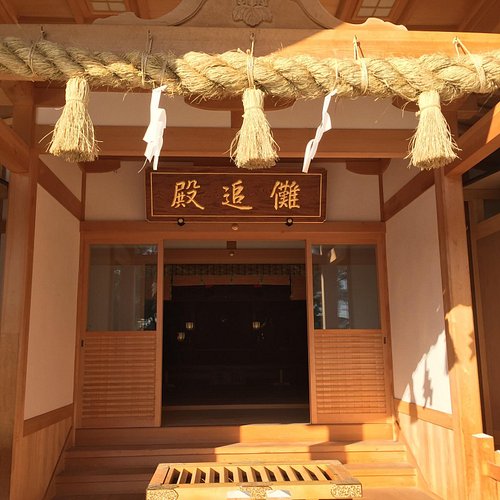What to do and see in Aichi Prefecture, Chubu: The Best Events
Aichi Prefecture (愛知県, Aichi-ken) is a prefecture of Japan located in the Chūbu region. The region of Aichi is also known as the Tōkai region. The capital is Nagoya. It is the focus of the Chūkyō Metropolitan Area.
Restaurants in Aichi Prefecture
1. Nishio Yonezu River Festival
Overall Ratings
4.5 based on 19 reviews
Held every year on August 15th during Obon, this festival was founded to comfort the souls of those who died in natural disasters, fell in battle, or drowned in the Yahagi River. As sutras are chanted and incense is burnt, approximately 2,000 Buddhist lanterns are floated on the river. The ensuing fireworks display lasts for an hour and features about 3,000 fireworks, lighting up the river together with the lanterns. The fireworks are set off from sandbars along the river, and watching the display at such close range-150 meters, soaring right up above you-makes for a spectacular visual and tactile experience.
2. Toyota Oiden Festival Fireworks
Overall Ratings
4.5 based on 14 reviews
This huge fireworks festival is held every summer in Toyota, Aichi as the finale to the Toyota Oiden Matsuri. Approximately 13,000 multicolored fireworks are launched from Shirahama Park along the banks of the Yahagi River, dazzling the sky in tune to music. The display features numerous high points, such as a "Niagara Falls" firework display and a spectacular display from the Japan Fireworks Artists Association. This extravaganza has received high marks and widespread popularity from locals, fireworks fans, and experts alike.
3. Gamagori Matsuri
Overall Ratings
4.5 based on 8 reviews
One of the classic hallmarks of summer in the city of Gamagori, the Gamagori Festival is held on a Saturday every July, attracting over 200,000 visitors a year to its wide variety of events. On Sunday, the festival concludes with a fireworks display in the cool of the evening. The show's biggest attractions are its giant "3-shakudama" fireworks, the largest class of fireworks on the Pacific Coast, which reach diameters of 650 meters-they leave the crowds truly awestruck when they light up the night sky.
4. Nihon Line Summer Festival Noryo Fireworks
Overall Ratings
4.5 based on 8 reviews
Also known as the "Nihon Line," this fireworks festival is held along the picturesque Kiso River. About 3,000 starmines and other fireworks make for a dazzlingly colorful display against the night sky-together with the nearby presence of the illuminated Inuyama Castle, they create a spectacle like none other. The venue is easily accessed from public transportation hubs: it's right near Inuyama-Yuen Station and an eight-minute walk from the JR Unuma Station. Traffic is restricted near the event venue, so public transportation is the best choice.
5. Nippon Domannaka Matsuri
Overall Ratings
4.0 based on 19 reviews
Held in Nagoya at the end of August each year, "Nippon Domannaka Festival" is Japan's largest dance festival. Started in 1999 mainly by Nagoya students, the scale has grown year by year to its current 200 teams and 23,000 participants. As long as they dance to a tune that incorporates a passage from a local folk song and while holding clappers in their hands, the event is open for all citizens to participate.
6. Nagoya Festival
Overall Ratings
4.0 based on 21 reviews
This festival from Nagoya in Aichi Prefecture got its start with the Nagoya Commerce Festival of 1955. While its name has changed, it is still going strong, being held on the first Saturday and Sunday of October. The must-see is the "Heroes' Parade." Three participants selected from an open call play the part of Aichi's three heroes (Oda Nobunaga, Toyotomi Hideyoshi, and Tokugawa Ieyasu), and they lead a troupe of 600 people from Nagoya Station to Nagoya Castle in a gorgeous parade. Other must-sees are the Float Parade, a designated national cultural asset, and the Kagura Parade, a cultural asset designated by the city.
7. Naoi Shinji (Hadaka Matsuri)
Overall Ratings
4.0 based on 15 reviews
Konomiya's Hadaka Matsuri is based on a traditional Shinto ritual, Owari Okunitama Shrine's Naoi Shinji, or "Dispelling of Misfortune Ritual." Held on January 13 on Japan's old lunar calendar, the festival sees thousands of men-particularly those at the critical ages of 42 and 25-descend upon the shrine clad only in bleached loincloths, or simply white tabi socks and nothing else. From among these crowds emerge holy men in white kimonos, and the struggle among the festivalgoers to be touched by the holy men and supposedly be spiritually cleansed can get quite fierce. The buckets of water carried by the men can give off steam from all the surrounding body heat, making for a stirring-yet quite feverish-sight.
8. Ichinomiya Tanabata Matsuri
9. Tokai Festival Fireworks
Overall Ratings
4.0 based on 13 reviews
This firework display is held every summer in Oike Park in Chuo, Aichi. This elaborate production sees 4,000 fireworks dazzle the night skies annually. The very-popular grandstands are located close to the site where the fireworks are launched, so viewers can enjoy the full impact of the display. You can also lie down on the park grass to watch the show. The second half of the program features rapid bursts of starmine fireworks right up to the finale, building to a spectacular climax. Festival stalls are lined up along the roads surrounding the venue, patronized by bustling crowds of festivalgoers clad in yukata.
10. Kasugai City Citizens Noryo Festival
Overall Ratings
4.0 based on 6 reviews
Located in the heart of Kasugai City, relaxing Ochiai Park has been named one of Japan's Top 100 City Parks. It is here, on a weekend in late September, that the Kasugai City Citizens Noryo Festival is held. The festival includes a variety of events, from a Bon Odori dance that draws crowds of children & adults alike to a full array of street stalls offering a diverse assortment of cuisine. In the evening, about 3,500 fireworks light up the night sky to the delight of the festivalgoers below.








